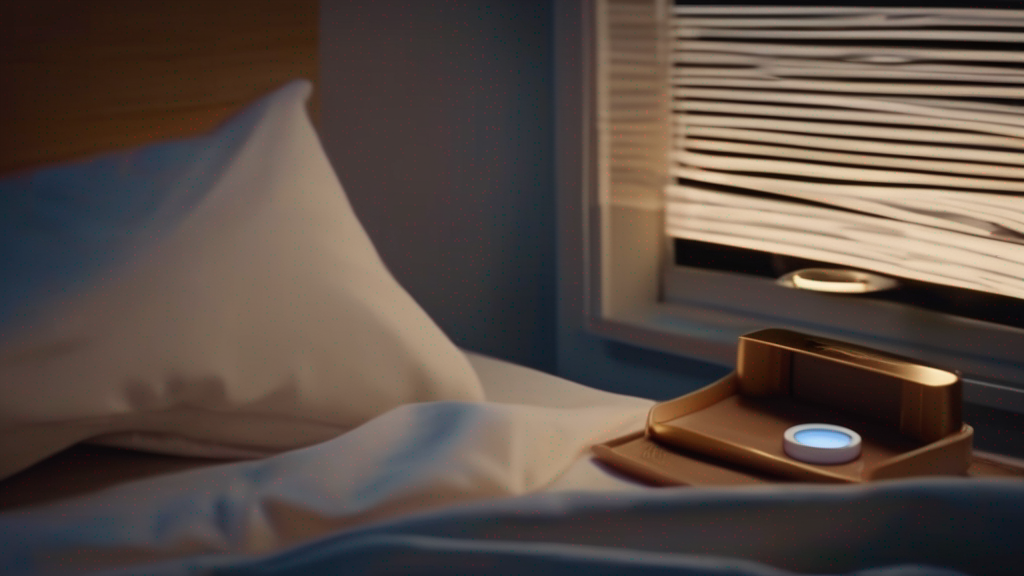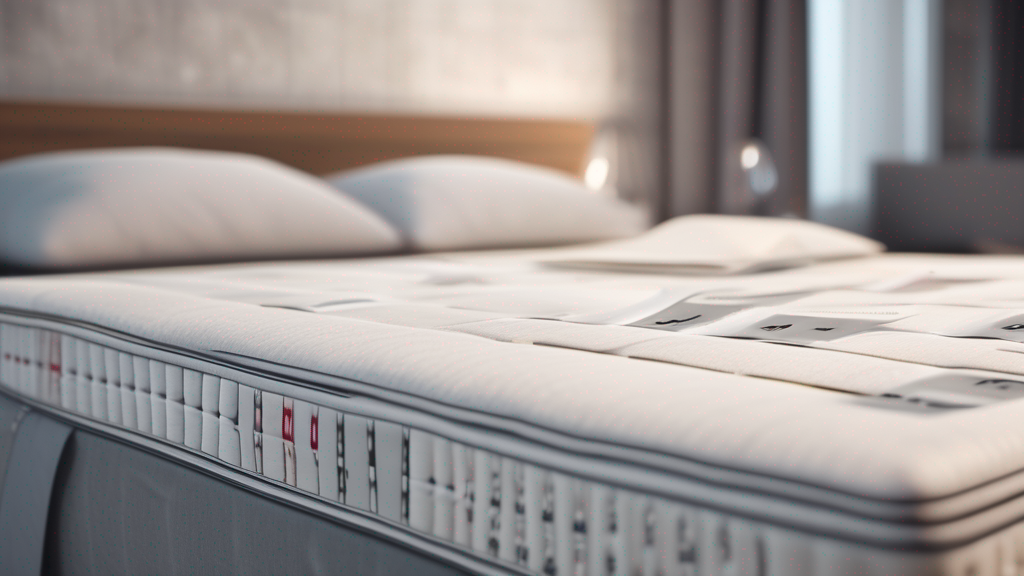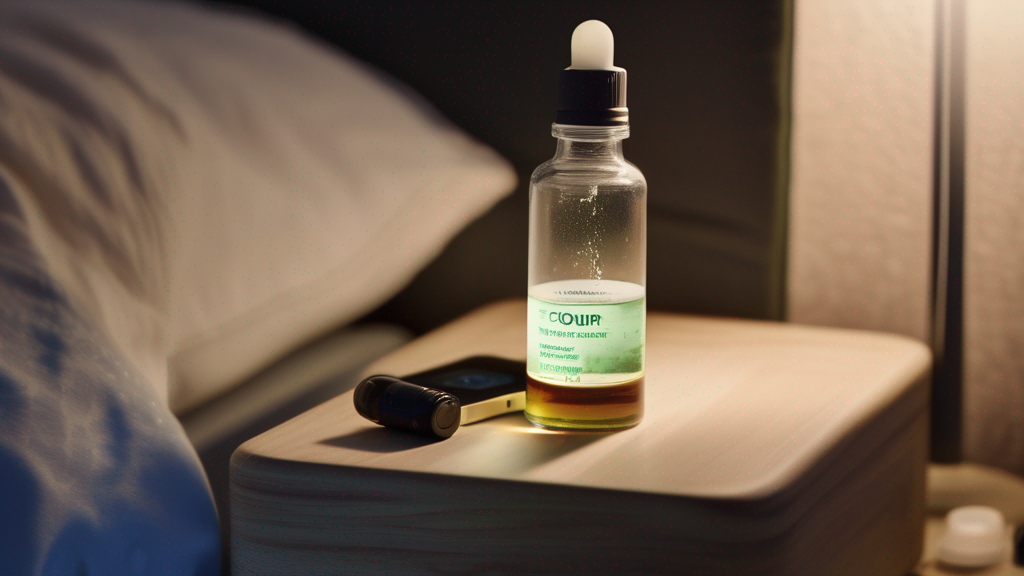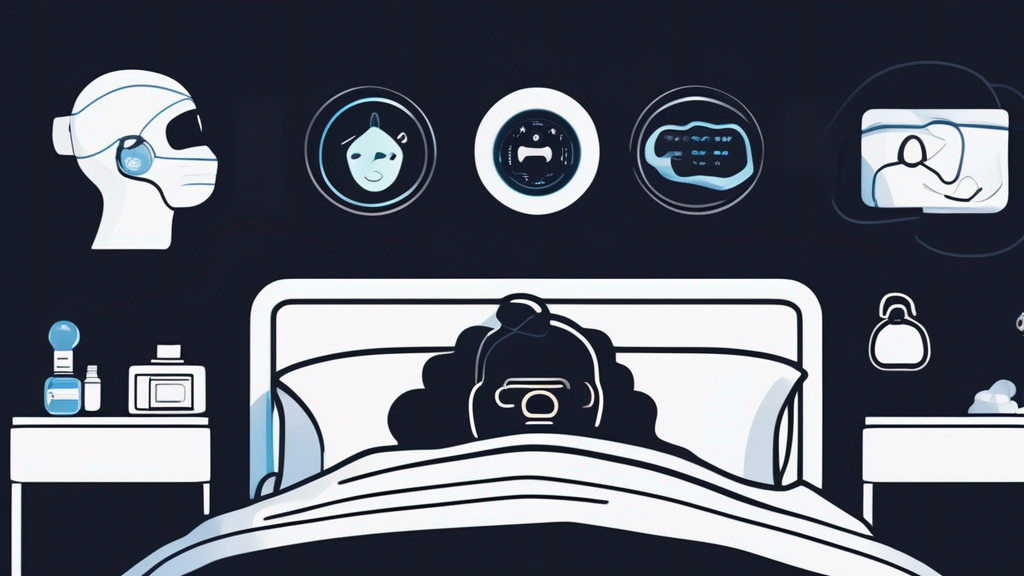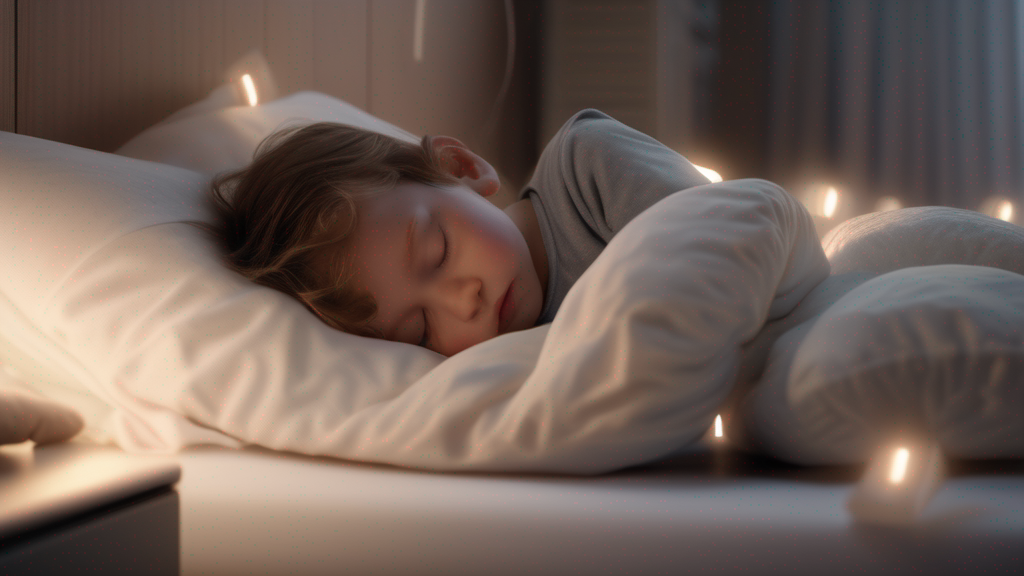First, can you sleep with contacts in?
If you are wearing contacts, it is not advisable to sleep. Experts assert that wearing contacts while you sleep raises your risk of developing a corneal infection, an infection of the transparent layer enclosing the colored portion of your eye.
I will show you the detailed information in the post.
Table of Contents
Why Sleeping in Contacts is a Bad Idea?
One incident of dozing off while wearing contacts is unlikely to cause permanent harm. If you take your contacts out and give your eyes a few days to recover, the problem should go away. You might wake up with red, itchy, and more dry-than-normal eyes, and you might not be able to wear your contacts the following day.
The real issues arise when you routinely continue to wear your contacts to bed. The Centers for Disease Control and Prevention (CDC) cautions that wearing contacts while you sleep increases your risk of developing a corneal infection by six to eight times. Eye infections can be uncomfortable, and they can also result in irreversible vision loss.
The cornea can become stressed from wearing contacts overnight and experience tears, scratches, irritation, and inflammation. It may also deprive your eyes of oxygen. Lack of oxygen can cause an accumulation of blood vessels on the cornea, which can result in corneal neovascularization.
In fact, this degree of inflammation has the potential to alter the shape of your cornea, rendering your contacts unusable. It’s possible that sleeping with your contacts in will prevent you from ever being able to wear contacts again.
To put it simply, wearing contacts while you sleep can be risky. Always adhere to the guidelines pertaining to the type of contact lenses you are wearing and the recommended wearing time.
Can You Wear Contact Lenses To Bed?
Contact lenses shouldn’t be worn while you sleep. According to specialists, wearing contacts while you sleep will raise your risk of developing a corneal infection, which affects the transparent layer that covers the colored portion of your eye.
The risk of microbial keratitis, a form of corneal inflammation caused by infection, is over five times higher when you wear your contact lenses overnight. No matter what kind of lens you are wearing—soft, hard, decorative, or prescription—this risk exists. Unfortunately, both teenagers and adults who wear contacts frequently do so while they sleep.
Your risk of infection may also rise if you occasionally or unintentionally sleep with your lenses in. Even lenses that have been cleared for overnight or extended wear are discouraged by researchers from being worn while you sleep.
What Happens If You Sleep With Contacts In?
Your risk of developing an eye infection significantly rises when you sleep with contacts in. These infections have the potential to seriously harm the cornea and impair vision.
Bacterial Keratitis
If untreated, bacterial keratitis, or an inflamed cornea brought on by a bacterial infection, can cause a person to lose some or all of their vision. Wearing contacts, especially if you wear them all night, increases your risk of contracting this infection. Bacterial infections can be caused by more than one bacteria type, such as Pseudomonas aeruginosa and Staphylococcus aureus, which can be found in soil, water, and your body.
When you put your contacts in or take them out, your fingers can spread bacteria to your lenses, which can result in bacterial keratitis. If the storage case or lenses haven’t been thoroughly cleaned and disinfected, the bacteria may also spread from there. Your risk of developing bacterial keratitis can also rise if you rinse your lenses in water rather than contact solution.
Acanthamoeba Keratitis
Ancanthamoeba keratitis, or inflammation of the cornea due to an infection caused by amoeba, can also lead to vision loss or blindness. This type of infection is caused by a tiny, single-celled organism called Acanthamoeba, which can be found in natural bodies of water, soil, tap water, heating and air conditioning systems, and hot tubs.
Wearing contact lenses puts people at risk for Ancanthamoeba keratitis, with 85% of the people who experience this inflammation being contact lens wearers. Your risk increases if you practice bad contact lens hygiene, such as swimming or taking a shower while wearing your lenses. This kind of infection can appear if you have a scrape in your eye, which can result from an injury or from wearing contact lenses frequently, and the organism enters the scrape through water or contact lens solution.
Sleeping in your lenses overnight can make you more susceptible to an Ancanthamoeba keratitis infection. A cornea’s capacity to defend itself against microorganisms is compromised when you wear contacts because they reduce the amount of oxygen that gets to your cornea.
Fungal Keratitis
When left untreated, fungal keratitis, or corneal inflammation brought on by a fungal infection, can also result in vision loss or even blindness. Types of fungi often behind fungal keratitis include those from the Fusarium, Aspergillus, and Candida species. Although this kind of infection can occur anywhere, it is more common in tropical regions of the world. Antifungal medications are typically used to treat bacterial keratitis, but surgery or a corneal transplant may be necessary in more severe cases. Wearing contact lenses and getting an eye injury from a plant, like a stick or thorn, are risk factors.
Can You Sleep With Contacts In: Is It Really Bad
What Takes Place If Contacts Are Worn While You Sleep?
Your risk of developing an eye infection significantly increases if you sleep with contacts in. These infections have the potential to seriously impair vision and permanently harm the cornea.
Bacterial Keratitis
Bacterial keratitis, or a cornea inflamed due to bacterial infection, can cause a person to lose part or all of their vision if not properly treated. Contact lens wear increases your risk of this type of infection, especially if you wear contacts overnight. Bacterial infections can be caused by more than one bacteria type, such as Pseudomonas aeruginosa and Staphylococcus aureus, which can be found in soil, water, and your body.
When you put your contacts in or take them out, your fingers can spread bacteria to your lenses, which can result in bacterial keratitis. If the lenses or storage case have not been thoroughly cleaned and disinfected, the bacteria may also spread from there. You run a higher risk of developing bacterial keratitis if you rinse your lenses in water as opposed to contact solution.
Acanthamoeba Keratitis
Ancanthamoeba keratitis, or inflammation of the cornea due to an infection caused by amoeba, can also lead to vision loss or blindness. This type of infection is caused by a tiny, single-celled organism called Acanthamoeba, which can be found in natural bodies of water, soil, tap water, heating and air conditioning systems, and hot tubs.
Wearing contact lenses puts people at risk for Ancanthamoeba keratitis, with 85% of the people who experience this inflammation being contact lens wearers. Your risk increases if you practice poor contact lens hygiene, such as swimming or taking a shower while wearing your lenses. You can get this kind of infection if you have a scrape in your eye, which can happen from an injury or from wearing contact lenses frequently, and the organism gets into the scrape through water or contact lens solution.
Sleeping in your lenses overnight can make you more susceptible to an Ancanthamoeba keratitis infection. Because your cornea receives less oxygen when you wear contacts, it is less able to defend itself against germs.
Fungal Keratitis
Fungal keratitis, or corneal inflammation caused by a fungal infection, can also lead to vision loss or blindness when left untreated. Types of fungi often behind fungal keratitis include those from the Fusarium, Aspergillus, and Candida species. Infections of this kind can occur anywhere, but they are more common in tropical regions of the world. Antifungal medications are typically used to treat fungal keratitis, but more extreme cases may necessitate surgery or a corneal transplant. Wearing contact lenses poses a risk, as does sustaining an eye injury from a plant-related object, such as a stick or thorn.
How Long Can You Sleep With Contacts In?
You cannot sleep with contacts in your eyes for any length of time that is considered safe. Optometrists and ophthalmologists will advise against it completely across the board; why take a chance on complications?
Can You Sleep With Contacts in for One Night?
Eye irritation and other symptoms can develop after just one night of sleeping with contacts in. Even though frequent and nightly wear often correlates with the most serious infections, you should always remove your contacts before going to bed. Even one night of wearing contacts can result in a serious infection.
Can You Sleep With Contacts in for One Hour?
It’s best to avoid sleeping with contacts at all, not even for a few hours. Your risk of contracting an infection increases every time you sleep in your contacts. The best course of action is to remove your contacts as a safety measure if you’re feeling sleepy.
Can You Take a Nap With Contacts In?
Optometrists advise against taking a nap while wearing contacts. Yes, even if the nap lasts less than an hour, it can still raise your risk of eye irritation and infection. You’ll also probably wake up with “sticky” or dry eyes, and no one wants that!
Just keep in mind: Whether you wear your contacts while sleeping for one night, an hour, or just a few minutes, you’re increasing your risk of developing a serious infection that could result in blindness or vision loss.
Can You Sleep With Contacts In Is It Really Bad
How Does Sleeping in Contacts Raise Your Risk of Infection?
Daily bacterial contact with the cornea results in very little infection. That’s because your eye’s natural defense mechanism against impurities depends on a healthy cornea. However, your cornea requires both hydration and oxygen to operate in a healthy manner.
While you’re awake, blinking keeps your eyes moist so that oxygen can enter your body through your tears. The amount of oxygen and moisture your eyes can access is significantly reduced by contacts, which fit over the surface of your eye.
That reduction gets worse while you’re sleeping. The corneal cells become less effective at battling bacteria when there is not enough oxygen present, a condition known as hypoxia.
What Should I Do If I Left My Contact Lenses In Overnight?
As previously mentioned, it’s dangerous to wear contact lenses overnight. If you wore contacts while you slept, we advise that you adhere to the following guidelines:
- Even if your eyes are extremely uncomfortable after waking up, do not take out your contact lenses right away.
- Make an effort to blink frequently so that the tear film can moisten and soften the lens.
- Put eye drops in the eye if you can’t take your contacts out. To moisten the eye instead, you can use distilled water or contact lens solution.
- You can carefully remove your lenses once they are soft enough.
- Put off replacing your contact lenses as long as you can. Wear your glasses on that particular day if you have them.
- After a few hours, you ought to see an ophthalmologist if you’re still experiencing pain or discomfort in your eyes.
- Do you frequently leave your contact lenses in overnight? Changing to new lenses that are better suited to your habits is something we’d advise.
Read about: How To Sleep While Taking Cymbalta?
How Should Your Eyes Be Cared For After Wearing Contacts At Night?
You might eventually nod off while wearing the incorrect contacts. As soon as you realize you fell asleep while wearing lenses, take them off, and the following day, take a break. It’s always a good idea to have prescription glasses on hand for situations like this.
Apply eye drops to your eyes to hydrate them if you notice any dryness or irritation after sleeping with contacts. Additionally, call your optometrist right away so they can examine your eyes up close if you experience more severe side effects from sleeping in contacts, such as blurry vision.
Can Someone Who Wears Contacts At Least Nap?
How much harm can a one-hour nap actually cause? A nap seems harmless when you’re just closing your eyes for a short while, but both Dr. Even for brief periods, Drs. Tsai and Adams continue to advise against sleeping with contacts in. Dr. Adams explains that because napping deprives the eyes of oxygen, it will also cause irritation, redness, and dryness. “Furthermore, we are all aware of how quickly a brief nap can turn into several hours,” says Dr. Tsai.
Whoops, You Inadvertently Did It; What Happens Next?
Maybe you accidentally fell asleep after binging Outlander, or maybe you immediately jumped into bed after a night out. Whatever the cause, you’re going to fall asleep with your contacts in at some point; it happens. There’s no need to panic, despite the risks involved.
Your eyes may be dry when you first wake up, according to Dr. Tsai. She advises adding some lubricating drops to the solution before removing the lenses to help loosen them for removal. Dr. Adams continues, “You can try blinking a few times to get some tears flowing again to moisten the lenses when taking them out, but using an eye solution is the best choice.” She advises continuing to use eye drops (between four and six times) throughout the day to keep your eyes hydrated.
The next step is to allow your eyes a full day of rest so they can recover. If you have glasses, Dr. Adams advises using them instead. Tsai advises keeping an eye out for symptoms of infection, such as redness, discharge, pain, blurred vision, excessive watering, and light sensitivity.
If Not Contacts, Can You At Least Wear Them In The Shower?
We now know that almost all sleepy situations are not acceptable. But you can also do other things while you’re awake that aren’t the best for wearing lenses. Never wash your face or take a shower while wearing contacts because doing so can introduce dangerous particles and increase your risk of infection.
The same goes for swimming, so be sure to get ready before you go to the pool or beach, whether that means packing your prescription sunglasses or an extra case for your lenses if you wear daily lenses.
How to Wear Your Contacts Safely?
Though getting enough sleep is beneficial to your health, wearing contacts while you sleep increases the risk of infection. Only use contacts when you are awake to protect your eyes. Practice good contact lens hygiene as well. Following these instructions can help protect against eye infections:
- As per the care instructions that came with them, clean and sanitize your contact lenses.
- After using, always throw away any unused contact lens solution. In your contact lens case, don’t add more solution to the liquid that’s already there.
- Never let saliva or any kind of water touch your contact lenses.
- When swimming or entering a pool, hot tub, lake, or ocean, remove your contact lenses.
- Every three months or as directed by your eye doctor, replace your storage case.
- Avoid transferring your contact lens solution into another container while you’re on the go because it isn’t sterile. Buy travel-sized products instead.
Additionally crucial is making yearly trips to the eye doctor. Even if your contact lenses are purely decorative and do not affect your vision, you should always get a prescription. Without a prescription, contact lenses are illegal and might be contaminated. You can discuss the most secure contact lens wear and care techniques with your doctor during a visit.
Conclusion
So, can you sleep with contacts in?
If you unintentionally slept in your contacts, try not to worry too much. Just remember to take them off when you wake up and use glasses for the day. That will give your eyes some much-needed recovery time.
Even though we don’t advise it, some contacts can be worn while you sleep. Which lenses can you wear to bed? One of them is prolonged wear. You should still take your contacts out every night before bed to prevent unpleasant side effects from sleeping in contacts, such as dryness or eye irritation.
Our eye care specialists are available to answer any questions you may have regarding how to care for your eyes after sleeping with contacts or what to do if you wear contacts for just one night.

